Father, son team up for powerful ‘American Dreams/Asian Nightmares’
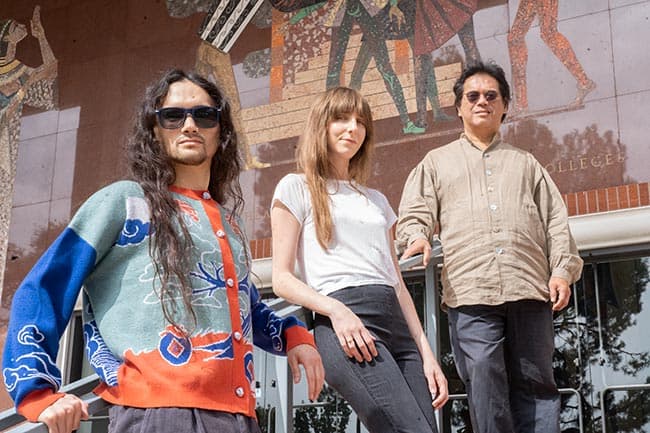
(L-R) National Endowment of the Arts grant award winning composer and 2013 Pitzer alumni Micah Huang, performer Emma Gies, and Scripps College Department of Music Chair Hao Huang, who also Micah’s father.
by Andrew Alonzo | aalonzo@claremont-courier.com
On Saturday, October 29, composer Micah Huang will premiere an intensely personal musical work four years in the making at Claremont’s Scripps College, “American Dreams/Asian Nightmares.”
Scripps Presents will host the free and open to the public 3 p.m. performance of the National Endowment of the Arts grant award winner at Garrison Theater, 241 E. 10th St., Claremont. Preregistration is required at eventbrite.com by searching “American dreams.”
Huang, a 2013 Pitzer College alumni and Chinese American, said the three-part performance tackles an issue close to his heart: violence against the Asian community.
According to the latest statistics from the U.S. Department of Justice, there were 121 more anti-Asian crimes committed in 2020 (279) than 2019 (158).
The project is a follow up to Huang’s 2021 theatrical podcast Blood on Gold Mountain, which delved into the Los Angeles Chinatown Massacre of 1871, one of the worst racial lynchings in West Coast history, with some 20 Chinese people killed over two hours on October 24, 1871. American Dreams/Asian Nightmares highlights instances of Asian hate in the United States over the last 150 years.
Hao Huang, Micah’s father and chair of Scripps College Department of Music, is the director American Dreams/Asian Nightmares. “What we’re trying to do is first expose the history that has been neglected, even hidden, which is right here,” he said.
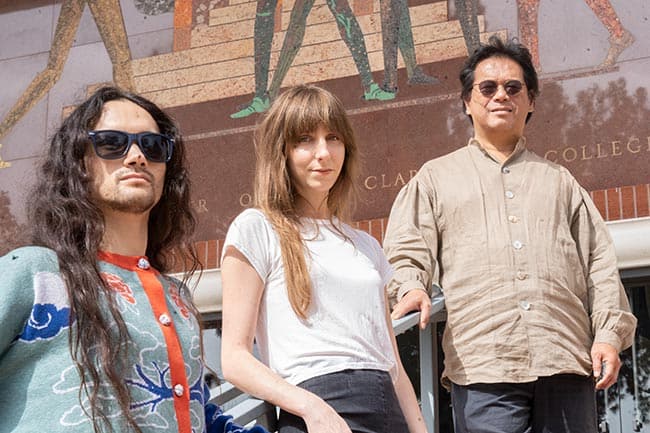
(L-R) National Endowment of the Arts grant award winning composer and 2013 Pitzer alumni Micah Huang, performer Emma Gies, and Scripps College Department of Music Chair Hao Huang, who also Micah’s father.
The performance includes three pieces, each based around a concept Micah Huang described as “otherness.” The first movement, “Other Bodies,” is an electric-acoustic piece utilizing “data sonification.”
“Data sonification has to do with the relationship between anti-Asian hate speech online and real-world violence, ” Micah Huang explained. It’s “a little bit archaic, but it’s kind of like a data visualization, like a graph.”
The second movement, “Other Minds,” is an electronic piece based on live biofeedback.
“The biofeedback takes the form of EEG [electroencephalogram] and also muscle tension measurements which is EMG [electromyography], and also a heart rate monitor,” Micah Huang said. “Those signals all go into a modular synthesizer which then turns them into sound. Basically, as we hear the biofeedback, what we’re also going to be hearing is some content of what people have said online about Asian Americans, and Asians and Chinese, like during Covid.
“That is meant to kind of show to a certain extent what the interiority of what being in the hot seat like that feels like.”
The final piece, “Other Futures,” is an acoustic movement composed during the performance utilizing a reading from the I Ching, a traditional Chinese book of divination.
“As the I Ching reading happens, the results of the reading are communicated to the musicians and that determines the structure of the piece that they play,” Micah Huang said. The piece features two Chinese instruments: the pipa and guzheng (pronounced “goo-chan”), which the composer described as a Chinese harp.
The musical portion of the project will run 45 to 50 minutes. A panel discussion with Micah and Hao Huang and the production team will follow.
Although the program will highlight tragedy after tragedy, Hao Huang explained its overall goal is not to garner sympathy, but rather to evoke empathy toward Asian and Asian-American communities.
“Try to understand how we feel,” he said. “Try to care how we live and feel.” The low points are meant to explain “what we’re dealing with in the present, the whole Covid inspired aggression, and really, are we ever going to be accepted as real Americans? What is our future here?”
Micah Huang said it’s difficult to answer what has changed over the last 150 years.
“I think that the nature of prejudice changes to reflect the kind of psychological needs of the people who are perpetrating the prejudice,” he explained. “I don’t know that we can say it’s better or worse, we just say that it’s different in space and its different in time.”
Hao Huang believes some progress has been made, but for every two steps forward there’s been another back.
“It seems to me like there’s these triggers that put us back, like Covid,” he said. “Let’s not forget that our president [Trump, in 2020] called it the ‘Chinese virus.’ He called it ‘kung-flu.’ And he was supported by 60 million people in this country who voted for him. So, it’s not as though we’re just imagining things.”
Emma Gies, one of the performers interpreting the I Ching, said American Dreams/Asian Nightmares is meant to facilitate meaningful conversations.
“A central question in this performance really is, and Hao mentioned this, what is the difference between being American and Asian-American? And then is there a possible future where that isn’t a dichotomy and where that is kind of a unity there?” Gies asked. “Except for our Native [Americans], we’re all visitors here. I think we all need to question our ideas of what it means to be American.”
Micah Huang said he considers himself both Chinese and American, but some people just see an Asian face. He said being targeted or assaulted randomly for looking Chinese has been a part of Huang family history for two generations running.
“Every single male person in our family, in the Huang family, has been physically attacked for racial reasons,” he said. “Many, many times in his case,” he said, gesturing to his father, “and a handful of times in my case.
“We have to be prepared to physically fight anytime because it can be anyone. It could be the police — that’s the worst-case scenario. But it can also be just about anyone else, and you never know how that might turn out. As you get older it just gets more stressful.”
With American Dreams/Asian Nightmares, “We’re trying to open up communication where it’s been cut off,” he continued. “Racism is in the air, and … it’s like a miasma that gets in between people so they can’t see each other clearly. What we’re trying to do is clear that away so we can see each other clearly.”
The free and open to the public performance of American Dreams/Asian Nightmares begins at 3 p.m. on Saturday, October 29 at Garrison Theater, 241 E. 10th St., Claremont.
“It’s worth learning about each other,” Hao Huang said. “We’re hoping that’s what people will come to do.”


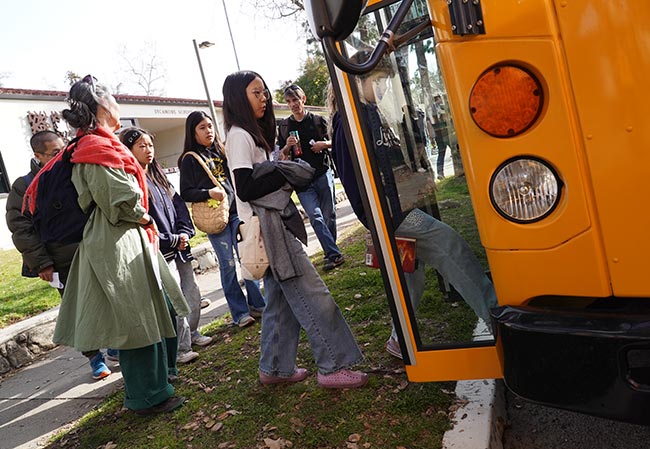
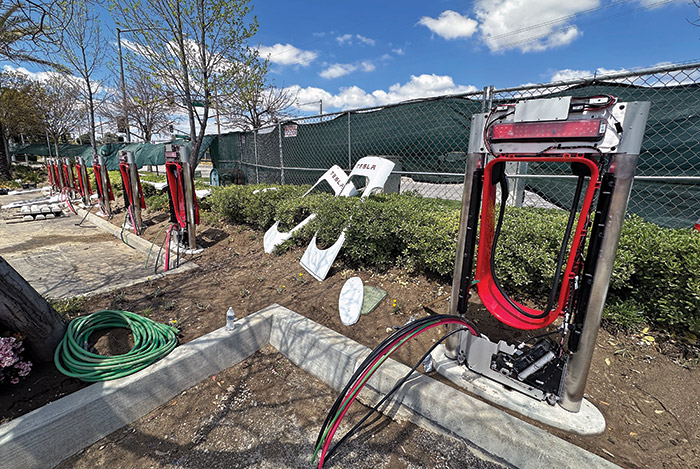
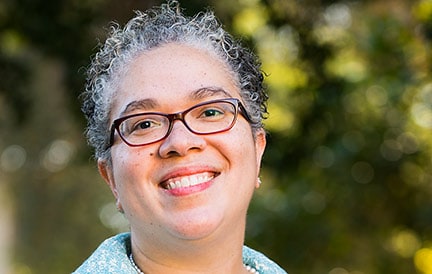
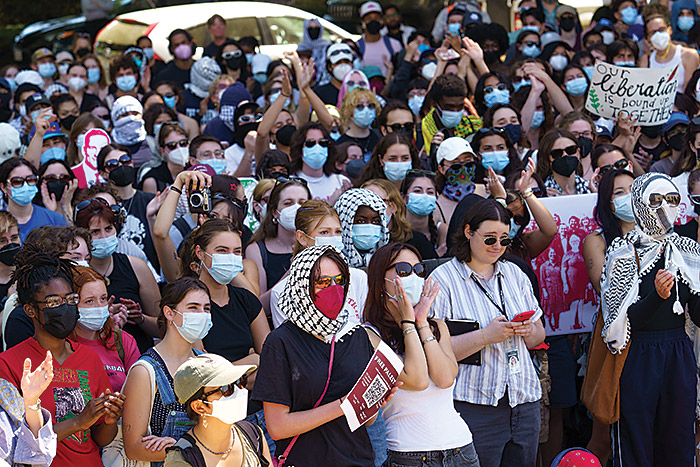
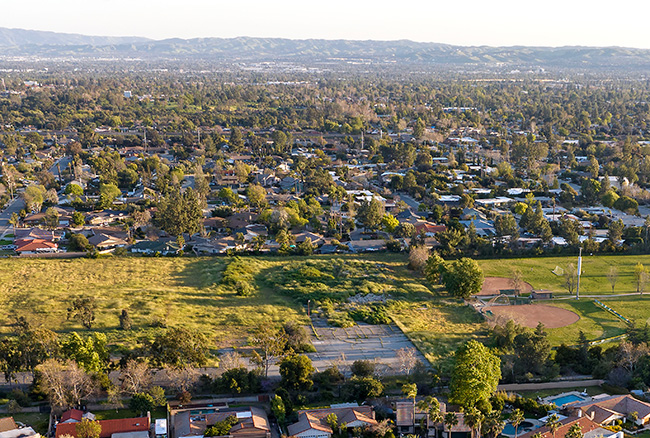
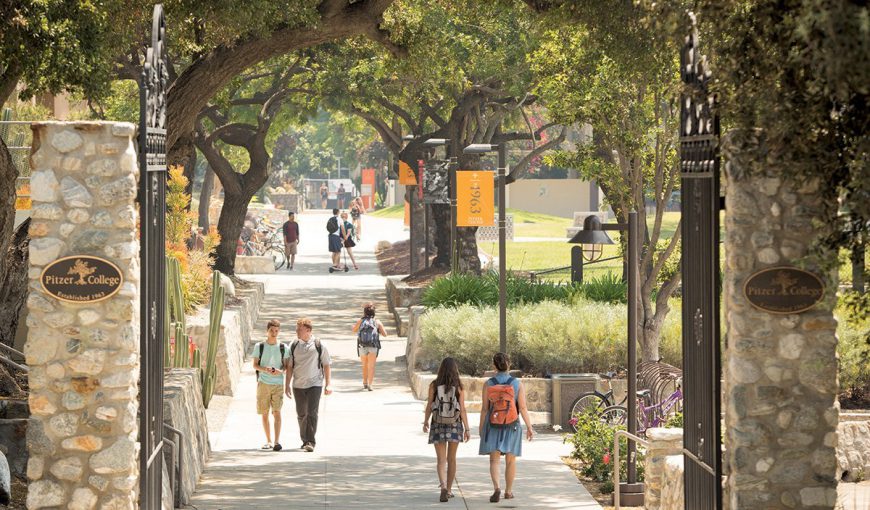

0 Comments